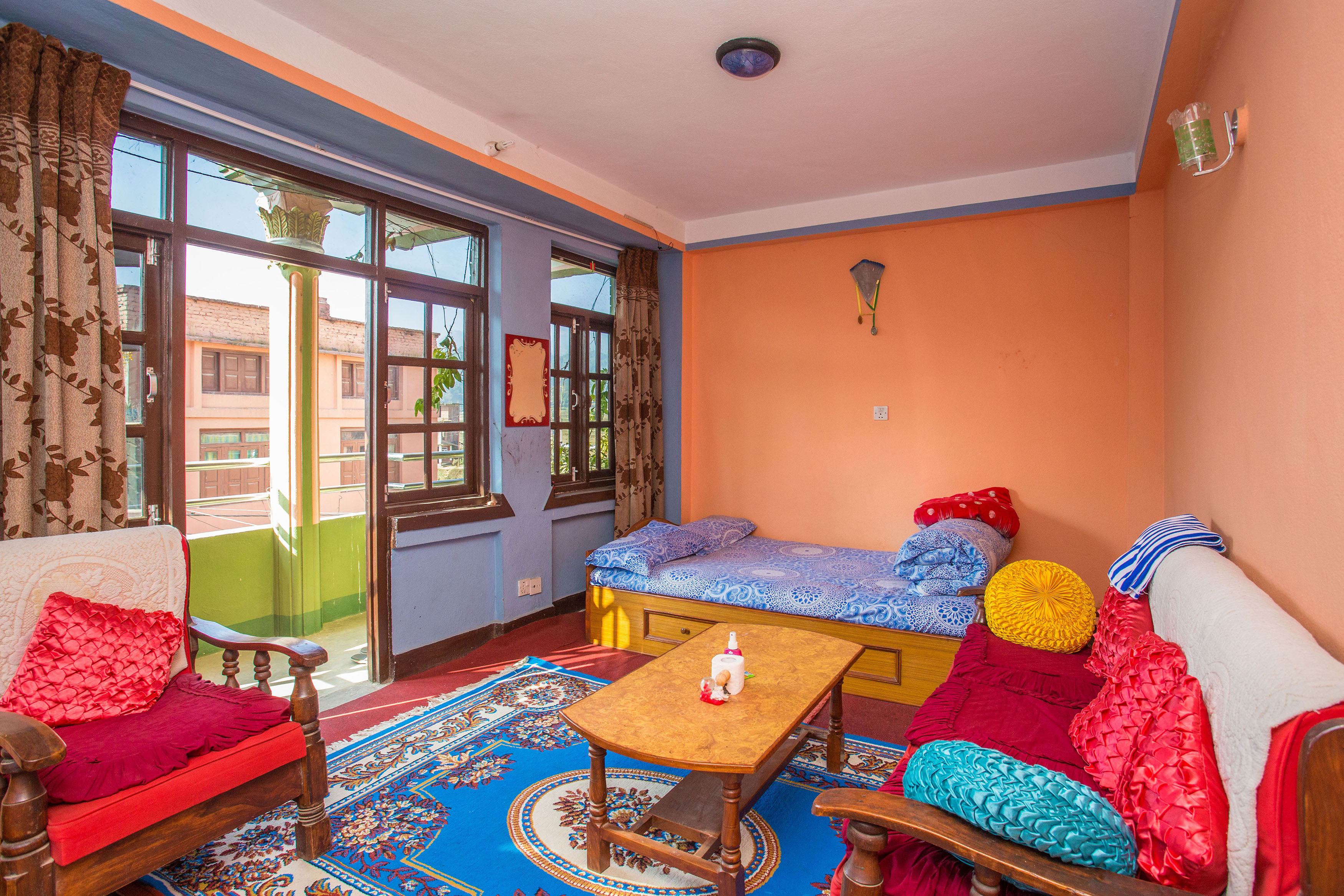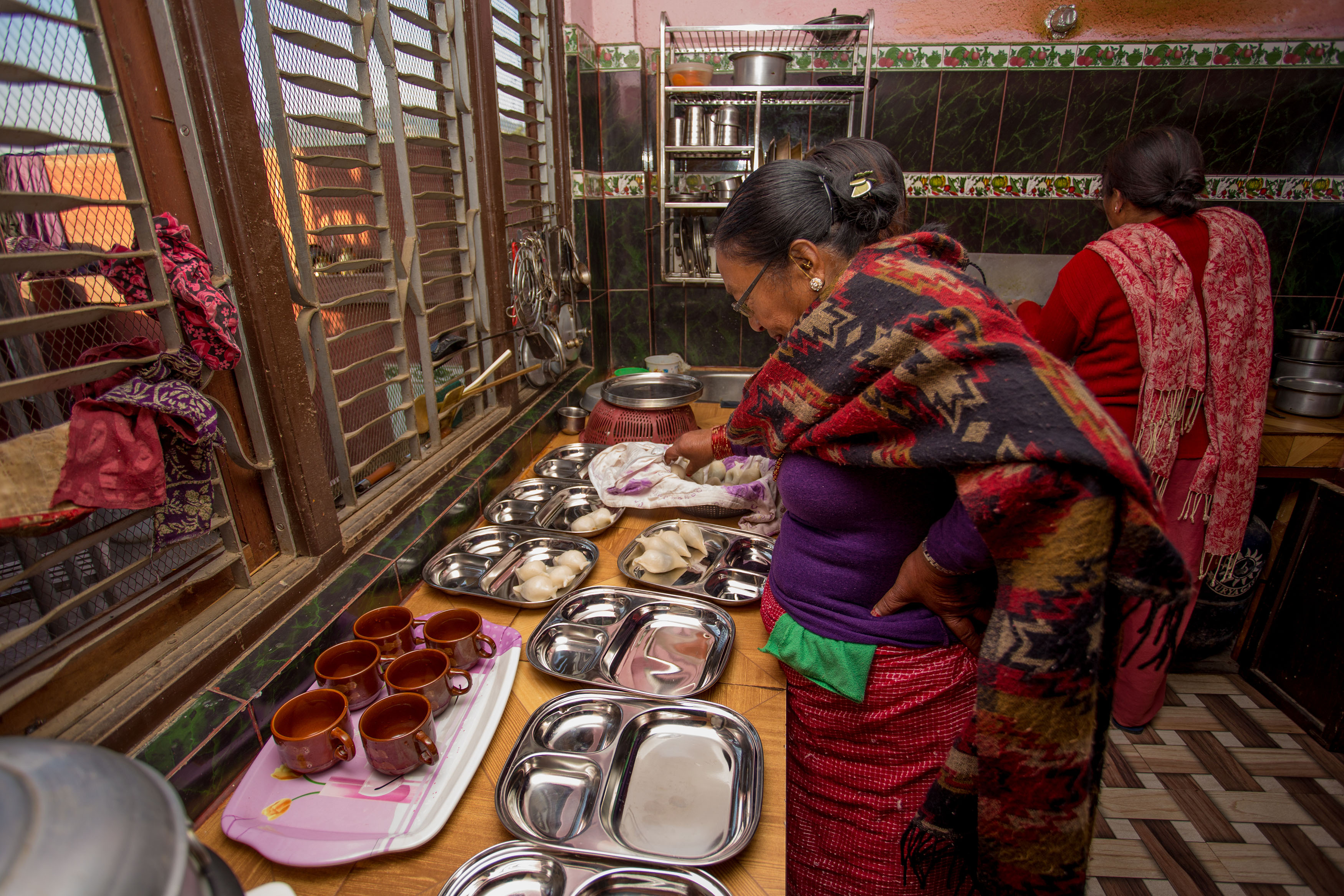Although it’s hard not to enjoy staying in a beautiful, luxurious hotel while travelling, the reality is that most budget hotels—and some mid-range ones, too—simply end up being a place to rest your head. For travellers who want much more from their accommodation, the Community Homestay project in Nepal offers just that. As well as providing guests an opportunity to experience authentic Nepali life, get to know small-town locals and participate in non-touristy activities, there is a serious social benefit to the host communities.
The Community Homestay project, run by Kathmandu-based Royal Mountain Travel, has been operating their flagship collection of homestays in Panauti since 2013. The Panauti Community Homestay project has recently partnered with Planeterra as one of the new projects for the 50 in 5 Campaign. Initially, 13 homes were involved. Now, 26 beds in 17 homes are open to visitors in Panauti.

The aim of the homestays from the beginning was to help empower the women of the community, in the understanding that by strengthening women, whole communities are strengthened. In traditional Nepali society—which still dominates everywhere but the most privileged enclaves of the major cities—women are typically dependent on men, first their fathers and then their husbands. They are usually under- or uneducated, too, so don’t get many opportunities to earn their own money or contribute to the household in any way other than with their household chores. The Community Homestays aimed to change all that in their communities.
The good news is, they’ve been really successful, especially in Panauti, where they began. Panauti is not completely rural but not urban, either. It’s a small town about forty kilometres from Kathmandu, traditionally inhabited by Newari people, an ethnic group largely found in and around the Kathmandu Valley. The town is surrounded by rice fields and hills, which are bright green just after the monsoon, and the architecture in the centre of the town is typically Newari, with ornately carved wooden doorways and windows. The main historical attraction of the town is the Indreshwar Temple, a tall pagoda structure beside the river that is the oldest temple in Nepal, dating from 1294. A sightseeing tour around Panauti with the host family is sure to interest travellers with various tastes.
The women of Panauti have been able to generate extra income for their households through hosting guests, and have some control over their own money. They have joined English classes so they can communicate better with their guests, which have given them greater confidence and social skills. They have worked together and made new friends and colleagues, and are no longer as house-bound as they once were. As one homestay host, Sabita KC, commented: “As I am, now, able to help with the household expenses, we can save money for the future of our children. I am glad that I am part of the homestay project.”
Operating the homestays has also had community-wide effects, beyond just the households directly involved. In order to be able to host guests, homes must meet a good standard of hygiene in all respects, including food preparation and waste disposal. As the hosting women became better educated about safe practices, the whole town caught on. As tourists to Nepal tend to enjoy clean, green natural environments free of garbage, the hosts became better aware of keeping their town in good shape. While Nepal isn’t short of stunning natural landscapes, unfortunately many settlements tend to be litter-strewn, with poor water quality in the rivers and ponds. But, as Panauti host Parvati Sainju commented: “We are more aware of sanitation and hygiene now. The entire community is more concerned about moving away from plastics and non-decaying products.”

The community has benefited in monetary ways, too. The thirty-four homestay women contribute 20% of their total income towards the development of community. So far, these funds have been put towards scholarships for underprivileged students. This sharing of some of the profits is a requirement of inclusion in the programme, and ensures that the ‘community’ aspect of Community Homestay stays strong.
These days, around 1800 guests stay at the Panauti Community Homestay annually. With such tangible achievements evident from just its first four years of operation, there are high hopes for what the project could continue to do for Panauti, as well as for other communities around Nepal.
____
Author: Elen Turner is a freelance travel writer and editor based in Kathmandu, Nepal. Find her at www.elenturner.com
Royal Mountain Travel is connecting a network of homestays in Nepal through CommunityHomestay.com. Be sure to check out some of the other amazing homestays they have supported, including Planeterra’s partners at Barauli Community Homestay. G Adventures’ Local Living Nepal tour brings you to Panauti village to spend four nights with your community hosts!


Post a comment